Greece is the word when it comes to aquaculture
From Asia to Africa to Europe aquaculture is taking center stage to lift people out of poverty, help replenish wild stocks and provide a sustainable source of affordable protein. In part one of the SeaWestNews series, Sea the Future, we look at how fish farming is shaping the economy of Greece and the Mediterranean diet.
Nancy Panteleimonitou’s (pictured) fish farming operations are part of Greece’s drive to make the aquaculture industry a pillar of its national economy and a vehicle to help replenish Mediterranean wild stocks.
By Fabian Dawson & Samantha McLeod
SeaWestNews
About three hours from downtown Athens, on the Nafpaktos-Itea road, past the ancient sanctuary of Delphi and the craggy slopes of Mount Parnassus lies Galaxidi, a picturesque town heralding an era of Greece’s maritime prowess.
Tucked and protected on the northern coast of the Corinthian Gulf, Galaxidi shaped by invasions, sea battles and ocean trade was home to Greece’s best captains, seafarers and shipbuilders.
Their stately houses and churches ringed by a promenade on the edge of a deep blue sea, stand majestically today, providing a breathtaking skyline that is reminiscent of a neoclassical masterpiece.
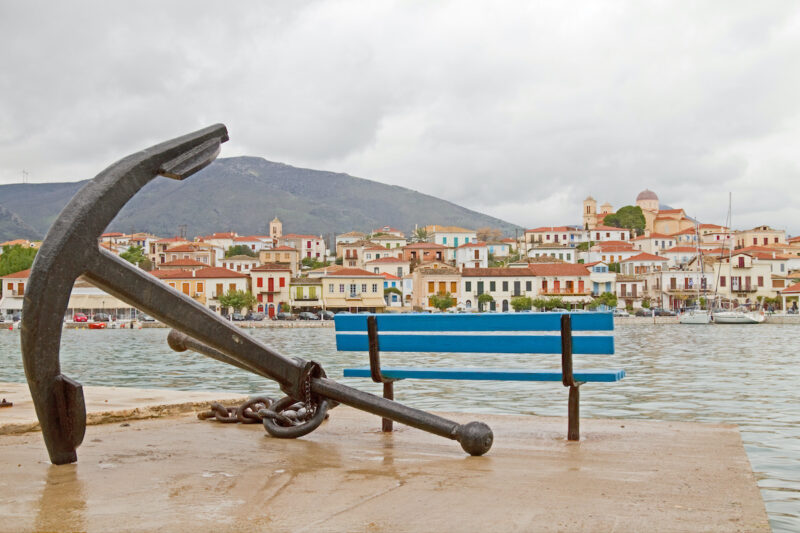
Galaxidi is a town on the northern coast of the Corinthian Gulf
The area’s peak of prosperity was from the mid 1800’s to the early 1900’s when Galaxidi-built tall ships with square-rigs and twin-masts, carried an array of cargo from the Black Sea and Mediterranean to and from the ports of Europe, Africa, North and South America.
Galaxidi, however, did not make the successful transition from sail to steam-powered vessels, and like the merchant marine powerhouses of Hydra and Spetses, the town lost its economic lustre.
Today a different type of maritime prowess is taking hold in this coastal community where serenity and science go hand in hand.
As Greece is gripped in the throes of an economic crisis, the pocket books of Galaxidi remain largely sheltered thanks to aquaculture, which is reshaping the Mediterranean diet while restocking the local seas.
“We have not laid off or reduced the salaries of any of our people,” said Nancy Panteleimonitou, the managing director of Galaxidi Marine Farm SA (GMF), which is the economic lifeline of the town, employing more than a third of its 1000 residents.
The sprightly 68-year-old, who constantly dons a company T-shirt that reads We do it in Cages, is not only the company’s matriarch but the aunt to all in Galaxidi.
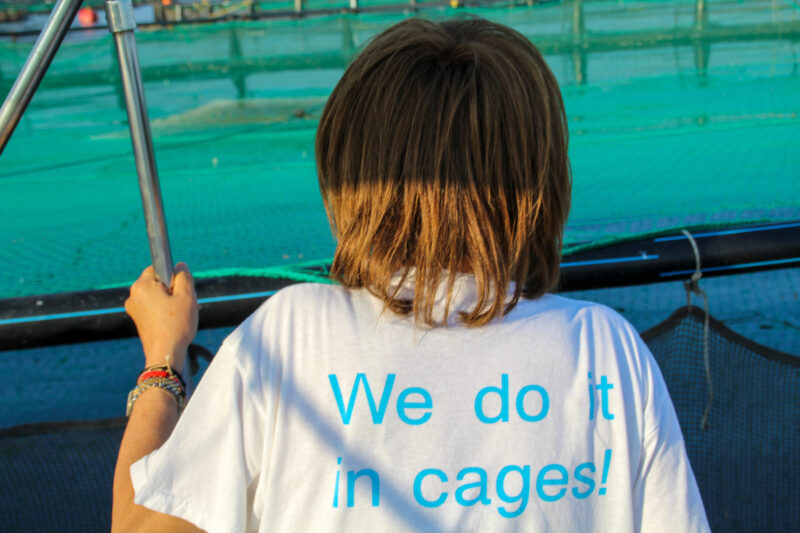
SeaWestNews met with Nancy (the name she insists we use) at her sprawling home, which is actually a refurbished 25-room hotel, located in one of the many secluded bays near GMF’s deep sea pens.
Here, amidst a throng of visiting friends and relatives, company officials dropping off their kids to use the saltwater pool and a wary brood of rescued mongrels, Greece’s first lady of aquaculture, recounted that she got into fish farming “accidentally”.
“I was travelling with a friend around Greece when we came across this operation in the sea…I was curious so I went down to see it,” said Nancy, whose father owned Greece’s first Ford dealership.
“My father loved the sea and always took me fishing…so it was natural for me to go find out what was going on,” said the one-time insurance executive and camping ground cook.
Within weeks of her initial aquaculture encounter, Nancy was working for the operation making meals for the workers, feeding the fish and tending to the cages.
“When the guy decided to sell, the Norwegians who wanted to buy it asked me to stay and run it for a while so I did because I fell in love with farming fish…I had never wanted to stay in one job for long…now look at me…it’s been more than 30 years”
Nancy’s rise in the world of European aquaculture has been nothing short of meteoric as she surrounded herself with scientists, marine biologists and traditional fishermen seeking new incomes as the Mediterranean wild-stocks disappeared due to overfishing and pollution.
Apart from five growing units, GMF also has a separate organic growing operation operated by a husbandry of organic concept in the Corinthian Gulf.
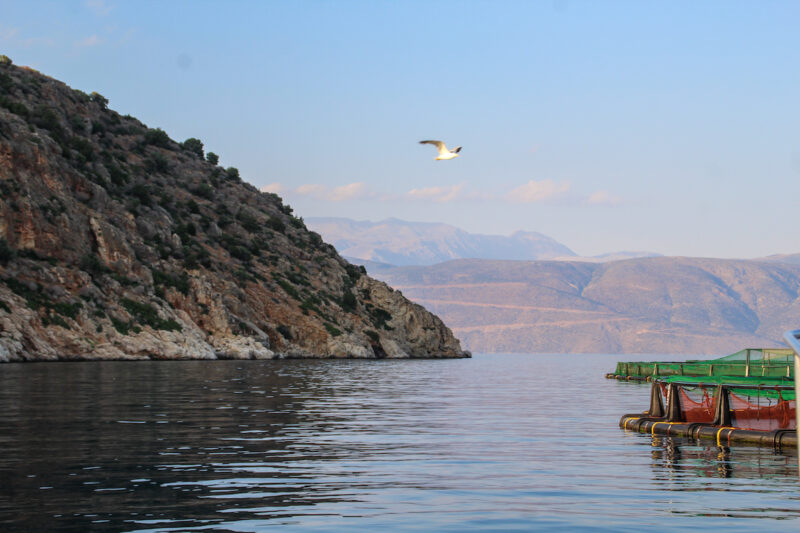
The Mediterranean is the world’s most overfished sea, with some 62.2% of fish stocks depleting fast, according to the UN’s Food and Agriculture Organization (FAO).
“Nobody wants a sea so familiar to many of us to have no fish for people to eat or no more jobs and livelihoods for those who depend on fishing in the region,” Lasse Gustavsson, executive director of Oceana in Europe, told Euronews recently.
Today more than 69 percent of all Greek fisheries production comes from aquaculture and accounts for 11 percent of total Greek agricultural exports.
Of the 1,045 aquaculture facilities in Greece, 36 percent are marine fish-farm sites. The main species farmed are sea bass and sea bream, particularly in offshore conditions, and mussels, according to Seafood Source.
Leading the pack is Nancy’s Galaxidi Marine Farm SA, which was ranked among the top companies in Europe when it comes to spending on research and development. According to the recent “2017 EU Industrial R&D Investment Scoreboard” published by the European Commission, Galaxidi Marine Farm, spent 36.2 million euros on research and development.
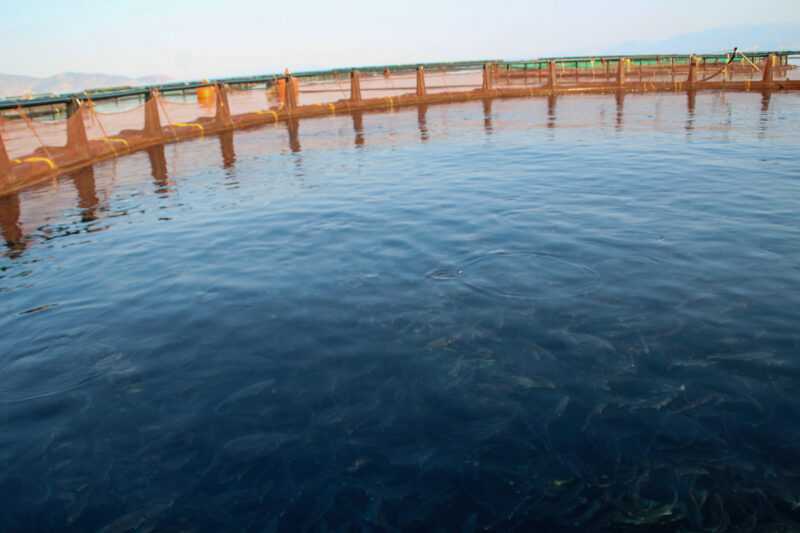
“Fish farming is always challenging and constantly changing and the science is very important not only for our business but also to protect wild stocks,” said Nancy, who founded GMF in 1987 and describes herself as “an old style boss woman who knocks on wood all the time”
GMF is one of the oldest, most famous European aquaculture companies primarily for its high quality fresh Sea Bream, Sea Bass, Red Porgy, Pandora and Sharp-Snout Sea Bream. Most of its production is snapped up Spain, Italy, Germany, France and Austria, bringing much needed Euros to Greece.
The company has five circular growing cage units in depths of between 80 and 150 meters, two hatchery sites and a modern packing and processing station designed to latest EU specification with automatic grading and weighting machines and a fleet of about 35 marine vessels.
Apart from the other growing units, GMF also has a separate organic growing operation operated by a husbandry of organic concept in the Corinthian Gulf.
“Our most attractive advantage is growing fish in their natural environment and the people of Galaxidi who have embraced this industry,” said Nancy, who scoffed at the push by some for sea pen operations to be replaced with land-based fish farming operations.
“This is a stupid idea especially because in many places there is not enough land to grow food and raise cows or goats…The science shows what we are doing is right and sustainable in a natural environment.
“They say open sea fish farming interferes with nature…I see these fish and feed them every day. Growing them on land is what is unnatural… that will interfere with nature,” said Nancy.
“And what will happen to places like Galaxidi…because the big operations will want to grow fish on land nearer to the big markets like Athens…you will not only kill a sustainable industry you will also kill the towns that depend on it.”
Nancy’s fish farming operations are part of Greece’s drive to make the aquaculture industry a pillar of its national economy and a critical vehicle to help replenish its wild stocks
For Greece, Nancy’s operations are part of its drive to make the aquaculture industry a pillar of its national economy and a critical vehicle to help replenish its wild stocks.
The consultancy company McKinsey & Co estimated that in the next 10 years, the aquaculture industry in Greece has the potential to add €1 billion in gross value added exports and create 48,000 new jobs.
To realize this potential, the first congress on Hellenic aquaculture took place in Athens last month.
About 250 participants, which included representatives of the aquaculture industry, academics, high-ranking Greek government officials, as well as European Commission and European Parliament dignitaries attended the event.
“It (aquaculture) encompasses all necessary elements to develop into a major economic lever capable of delivering considerable growth to the sector of primary production and the social fabric of the country, by attracting investment opportunities and creating several thousand jobs,” Filippos Petridis, CEO of Ambio, the company that organized the event, told local media.
For Nancy, she has not only seen this happen, she has made it happen in Galaxidi.
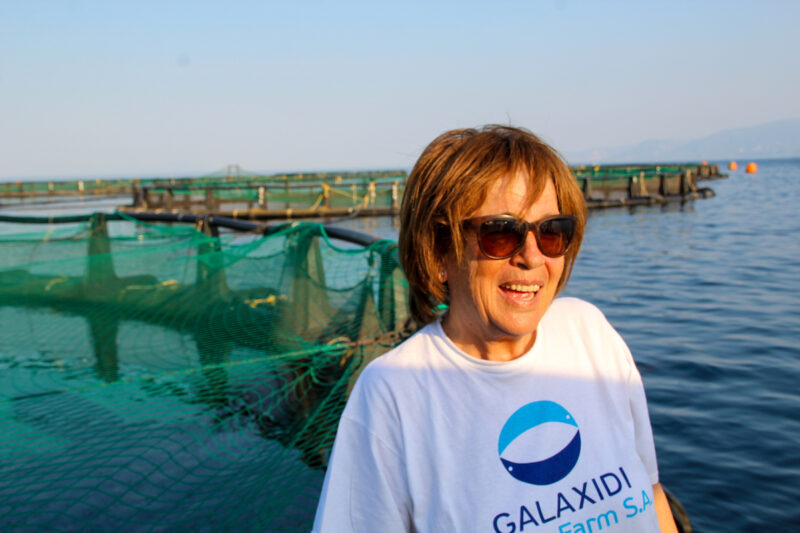
One summer night, last year, just after the moonrise, the townspeople gathered in the garden of Voula Manouloudi in the Harbour of Galaxidi to honour the “accidental fish farmer”. A local reporter had already dubbed her the “Queen of Bream”.
She went home that day with a book full of felicitations from the gathering organized by the Galaxidi Citizens Initiative, who thanked her for revitalizing their town, replenishing their sea and restoring their livelihoods.
It is her most prized possession.
“I am a fish farmer and this is my life…I believe it will help Greece grow and provide jobs just like in Galaxidi…and the fishermen here already tell me they are seeing the sea bream come back,” added Nancy.
More countries around the world turning to fish farms: UN

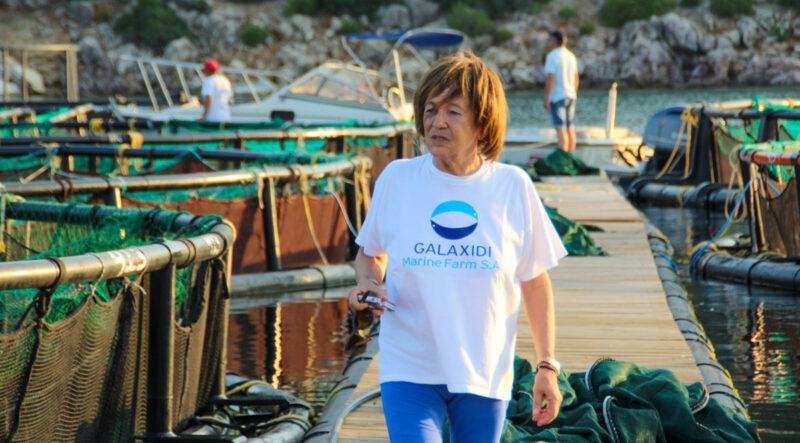
Comments are closed.